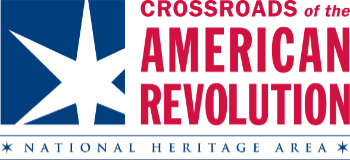Biography People
David Brearley Full Biography
I was born in 1745 at Spring Grove Farm in Maidenhead (today’s Lawrence Township) into a family that migrated to New Jersey about 1680 and was originally from Yorkshire, England. I chose to pursue law as my career and, after reading law with a lawyer in Princeton, I set up my practice at Allentown, New Jersey about 1767, about the time I married Elizabeth Mullen.
In late 1775, my brother Joseph was commissioned a captain in the Second New Jersey Continental Regiment and experienced the terrible fighting in Canada. Joseph wrote me several very descriptive letters about his experiences. He wrote me from Montreal on March 7 describing his dreadful march from New Jersey and my reply to him in May told him those hardships were, “what your friends dreaded before you went, tho we did not choose to discourage so necessary & laudable an undertaking.” I also told him that at home things were “tolerable quiet” although our militia had to keep a constant guard at Sandy Hook to prevent marines landing from British ships that sailed down from New York harbor to avoid the artillery Washington had placed on Manhattan Island.
I was active in the protests that led to the Declaration of Independence and when a brigade of militia was raised in June 1776 to serve on full-time active duty for five months, I was lieutenant colonel of Colonel Philip Van Cortland’s regiment. During those five months, I fought in the series of battles that failed to prevent British General Howe from establishing his headquarters at New York. Then, I marched on Washington’s retreat through New Jersey until the five-months expired on November 30 and I returned to Allentown on December 1. Joseph returned from Canada about the same time and he had had enough of life in the Continental Army, so he returned to his duties in the First Hunterdon County militia regiment.
Just before my five-month militia commission expired, I was commissioned as lieutenant colonel for the Fourth New Jersey Continental regiment, just then being formed, but then switched to the First New Jersey Regiment on January 1, 1777. That December and early January, when New Jersey was in chaos due to the British occupation, I served as an individual with Washington’s troops as they fought back against the British and Hessians occupying New Jersey and made them retreat to winter quarters at New Brunswick and Perth Amboy, while Washington’s troops wintered at Morristown. I joined the First New Jersey Regiment there and served through the Philadelphia campaign in 1777, Valley Forge in the winter of 1778, and then the Battle of Monmouth in June 1778. In March 1780, I reluctantly resigned my commission, because I had been chosen Chief Justice of the New Jersey Supreme Court by the legislature. I presided over the case of Holmes v. Walton and in overturning the conviction of John Holmes for trading with the enemy, I supported the concept of Judicial Review by overturning a law passed by the Assembly as unconstitutional, the principle supported by Justice John Marshall in the famous case of Marbury vs Madison in 1803. The College of New Jersey presented me with an honorary M.A. degree in 1781, but I was saddened in 1783, when Elizabeth died. I married Elizabeth Higbee as my second wife.
In 1787, I participated in the convention at Philadelphia that wrote the United States Constitution. I strongly supported my friend William Paterson and his New Jersey Plan, proposing one vote for each state in the new congress, rather than proportional representation based on population. A compromised followed, but on August 31, it seemed like the convention might fail over the issue of ratification. That issue was resolved, but there was still much to do, so a Committee on Postponed Matters was created with one member from each state. As New Jersey’s member, the other members chose me to be the chairman. We had a host of issues to deal with, including how to elect a president. When the reports of my committee were debated in the convention, I followed the example of George Washington and kept out of divisive debate. I culminated my role at the convention by signing the U.S. Constitution as a delegate from the State of New Jersey.
When the Constitution was submitted to the states, I presided over the New Jersey ratification convention in 1788. Then, in the first presidential election, I was one of the electors who unanimously voted for George Washington. Washington appointed me the first federal district judge in New Jersey and I served in that office until my death, soon after, in 1790. I died in Trenton, after suffering with a long illness that I continued to work through, at the young age of 45 and was buried in the cemetery of St. Michael’s Episcopal Church.
When not involved in public service, I was very active in the Episcopal Church, including helping to write the church’s prayer book, and was the first Grand Master of the New Jersey Masonic Lodge. I also served as vice-president of the Society of the Cincinnati, the organization of former Continental Line officers during the Revolution.
FURTHER SOURCES
Donald Scarinci. David Brearley and the Making of the United States Constitution. Trenton: New Jersey Heritage Press, 2005.
Note: Many biographical sketches of David Brearley found on the internet, at sites that are considered credible, and in print sources contain several important errors. For example, there is no evidence that he attended The College of New Jersey at Princeton. Also, they are mistaken when they say he was arrested for treason early in the Revolution and rescued from jail by some patriots. It was actually his father, also named David, who was arrested in the 1740s during land riots and was rescued from prison by fellow protestors.
